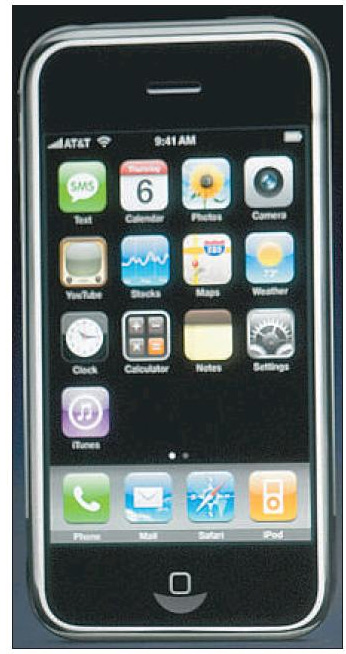David George-Cosh
Sun

The iPhone still trails the BlackBerry in the U.S. smartphone market.
TORONTO – On the day that Research In Motion Ltd.’s and Apple Inc.’s smartphone devices pushed into each other’s territories, Jim Balsillie, RIM co-chief executive, was extolling the benefits of a well-balanced diet to a Toronto audience.
“There’s no question … Blackberries have a lot of antioxidants (and) apples have a lot of fibre, too,” Balsillie told conference-goers at a downtown hotel Thursday when asked about his chief rival’s multimedia offerings.
All kidding aside, Balsillie may have been on to something. Forging a balance between the enterprise and consumer markets is the strategic lynchpin both are looking for as the two companies try to persuade customers that their smartphone is the all-in-one mobile device they’ve been looking for.
The stakes may have gotten a little higher. Apple officially announced it had partnered with Microsoft Corp. to support enterprise e-mail messaging for businesses, along with tools for developers to create a whole slew of new applications. Balsillie announced during a keynote speech at the Canadian Music Week conference that RIM will provide support for Dipdive, a social-networking website and online music store founded by artist and producer will.i.am.
“The communications platform for social networking and multimedia content are architecturally going to come together and . . . will create a very real and marketable community [for artists] if implemented well,” Balsillie said in an interview.
The website is a clear indication RIM wants a piece of the online music business, a market Apple pioneered with its iTunes Music Store and which has made it the second largest music retailer in the world. The service is said to start in a few months.
“Apple’s announcement was revolutionary, while RIM’s announcement was evolutionary,” said Carmi Levy, senior vice-president of strategic consulting for AR Communications Inc.
“The more consumer friendly (RIM) can make the BlackBerry, the better it is for its long-term growth. It’s another piece of what is turning into a very large and complex puzzle for them.”
Investors took a bearish stance toward both Apple and RIM following the announcements. Apple’s stock sank soon as Steve Jobs, chief executive, took the stage at company headquarters, down $3.56 US, to close at $120.93 US on the Nasdaq index.
RIM didn’t fare any better, falling more than four per cent for the second consecutive day to close at $97.92 US.
Although analysts agree that Apple’s support for e-mail won’t be enough to push RIM off its pedestal as the number one smartphone on the market, it is an important feature it hopes will sway customers from the BlackBerry to the iPhone.
The device is already in second place in the U.S. smartphone market, with 28 per cent share, while RIM remains on top with a 41 per cent share, according to estimates by British research firm Canalys.
“The smartphone market is not really owned by anybody. RIM doesn’t have enough of the share to hold anybody out,” said Rob Enderle, president of market research firm Enderle Group.
“This is going to be an interesting fight between both players but I’m going to give Apple the early nod [today].”
© The Vancouver Sun 2008

